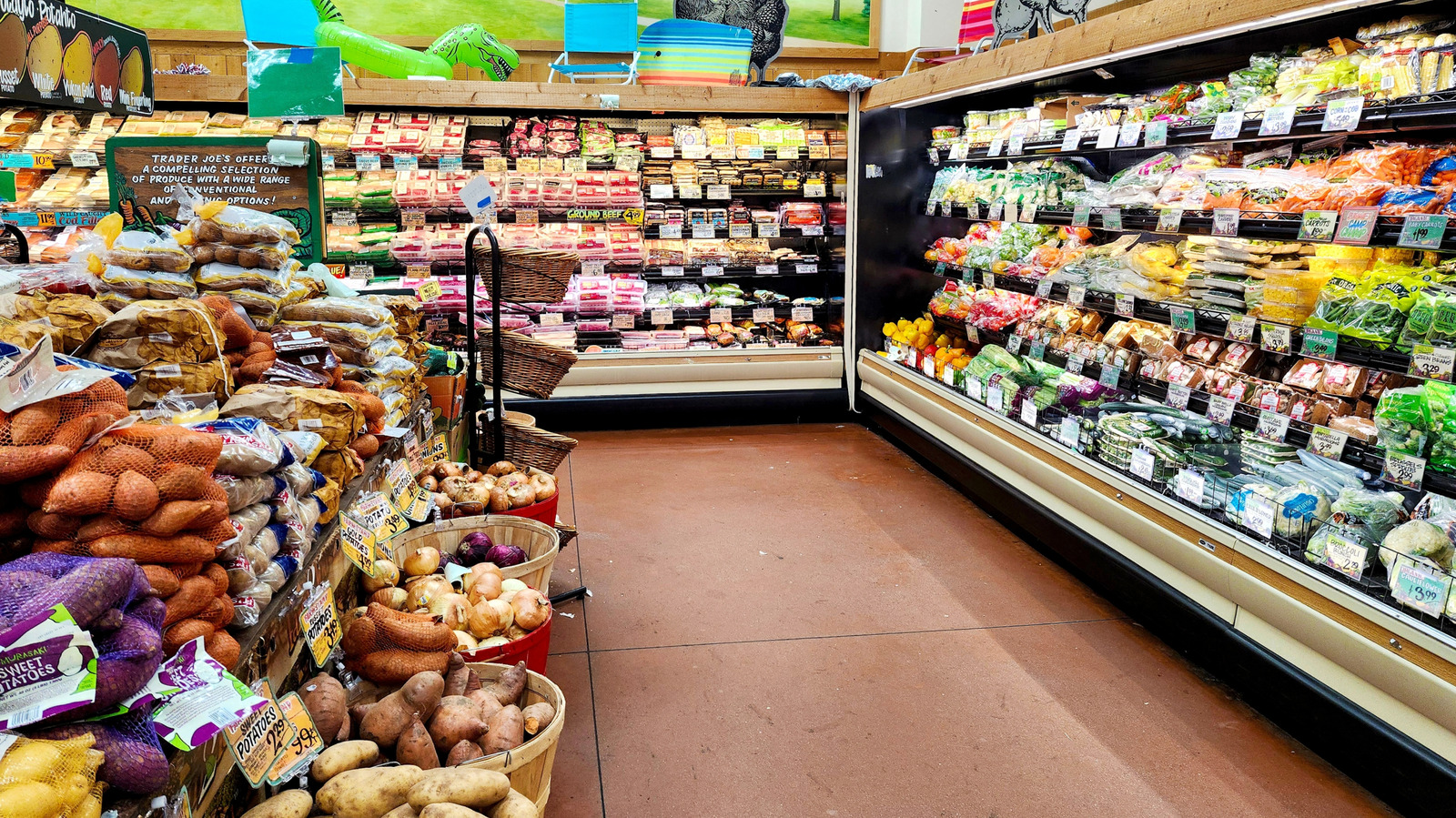As with all supermarket chains, Trader Joe's is often left with a lot of stock that, whether due to approaching use-by dates or blemishes, cannot be sold. According to , in 2023 alone, American retailers created 4.45 million tons of surplus food.
Close to 1.5 million tons of this food ended up being incinerated or tossed in a landfill. This is a social, environmental, and economic disaster, and several supermarket chains, including Trader Joe's, are trying to do something about it.

Due to consumer demand for a wide selection of foods, waste will always be a part of the grocery industry. That being said, supermarket chains can make an effort to ensure that this surplus food does not end up going to waste. Trader Joe's has responded to this challenge by launching its Neighborhood Shares Program.
This program sees all edible surplus food from Trader Joe's stores redistributed to local food banks, organizations, and agencies, meaning those experiencing food insecurity can eat food that would otherwise have gone to waste. All told, Trader Joe's works with some 2,000 organizations as part of this program. The program includes all Trader Joe's stores and runs every day.
During 2024, the chain donated over 98 million pounds worth of food products. (This was slightly down from 2023, when Trader Joe's donated more than 104 million pounds of food.) Trader Joe's is not the only supermarket chain to do this; .
Other ways supermarkets reduce food waste Trader Joe's and Aldi are not alone in donating unsold edible food to food banks, but what about inedible food products? Well, many supermarket chains, including Walmart, have schemes and partnerships in place to ensure that inedible food products are composted, made into animal feed, or used as a source of renewable energy. In 2023, Walmart globally sent 578 million pounds worth of inedible food products to be made into animal feed. A further 153 million pounds was composted.
Unfortunately, not all of the supermarket chains have such a robust system in place. According to Trader Joe's employees who have posted online, some TJ's locations do compost inedible food, while others simply throw inedible food products away. (We recommend that you also .
) While supermarket chains should be praised for any and all attempts to reduce food waste, it is important to note that doing so is not a completely altruistic practice. The chains receive tax breaks and incentives for donating food. What's more, donating food increases shelf space and improves the overall quality level of the food that's left in the store.
This helps the chains to drive up profit margins and might be another reason why . Recommended.
Food

Here's What Trader Joe's Does With All Its Unsold Food

At Trader Joe's, not every piece of fruit, wedge of cheese, or loaf of bread is able to be sold to a customer, so what happens to all that surplus?















